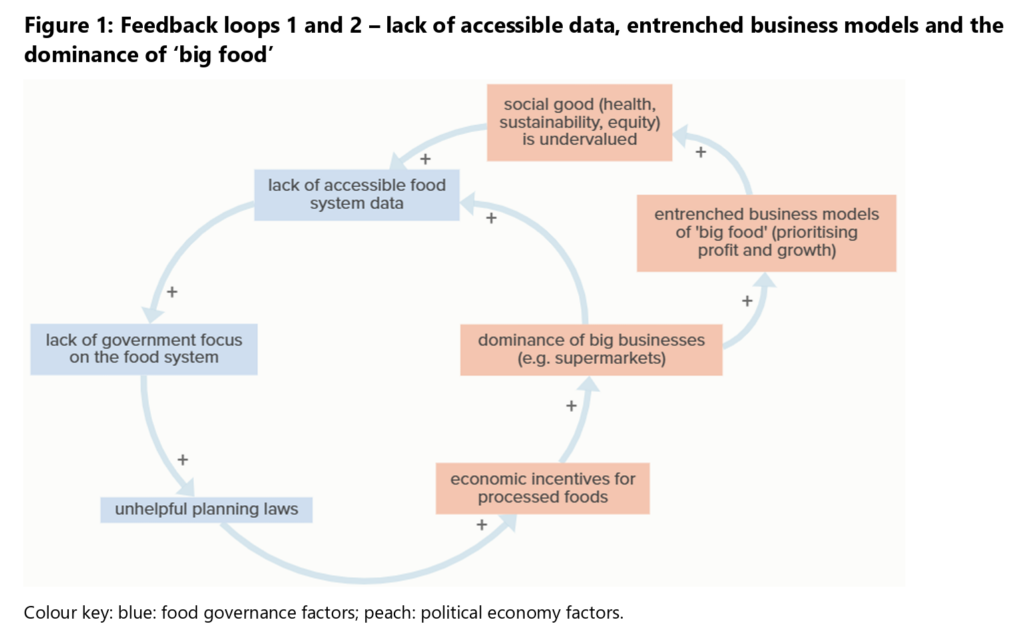Recently published, the report Applying systems thinking to inform the Food and Nutrition Strategy is a review into the Government of Jersey’s desire to reinvigorate its food and nutrition strategy.
The main purpose of the work is to modify the country’s food systems in order to develop a culture that enables Islanders to eat food that is nutritious, delicious, affordable and sustainable, and for Jersey’s food system to thrive.
In May 2023, thirty stakeholders were invited to participate in a workshop during which participants developed a greater understanding of what was driving the island’s problematic food systems; and a new food system was mapped.
Professor Martin White and a team from the MRC Epidemiology Unit, University of Cambridge, were commissioned to provide support during the review process of the Government of Jersey’s present policy:
We were delighted to be invited to contribute to development of the Government of Jersey’s new Food and Nutrition Strategy. We led a one-day multi stakeholder workshop to map the island’s food system and generate understanding of how it works and where the problems lie – both for health and sustainability.
We used the system map to identify where and how to intervene in the system to improve diet, health and sustainability, drawing on our wider experience in the Mandala and SALIENT research programmes. This allowed us to offer a menu of policy solutions for the challenges identified in the system mapping workshop.”
Dr Rob Marr, is a consultant in public health with the Government of Jersey’s public health department; he had previously worked at the MRC Epidemiology Unit:
Working with colleagues from the MRC Epidemiology Unit at Cambridge had many benefits. Using systems thinking and group model building tools we were able, in a relatively short period of time, to develop a detailed understanding of our local food system, finding powerful ways to improve our island’s health through better nutrition.
As a small Island team we were supported to understand how we could translate the Cambridge teams’ deep, international expertise in a pragmatic yet rigorous way into tangible actions for our small Island’s population. Martin and his colleagues helped us make sense of a vast and diverse evidence base so that we could focus our efforts on actions that are likely to deliver results in our local context.”
Director of Health Improvement, Martin Knight said of the collaboration:
Martin and his team were key partners in a process that saw us move from a position of frustration at our inability to change the global food system (which so often harms health) to a well-founded optimism about the many ways in which we can develop our local food system to improve our island’s health and protect its culture. Our Cambridge colleagues have helped us develop a food and nutrition framework that has a realistic chance of helping our Island address some of its most pressing strategic challenges.”
Subsequent work over the following year helped to identify options for ways to intervene in the food system to promote human and planetary health and reduce inequalities. These have since informed the development of Jersey’s new food and nutrition framework, which will be launched a stakeholder meeting on Wednesday 5 March in St Helier.
Reference
Read the report Applying systems thinking to inform the Food and Nutrition Strategy

 MRC Epidemiology Unit
MRC Epidemiology Unit
